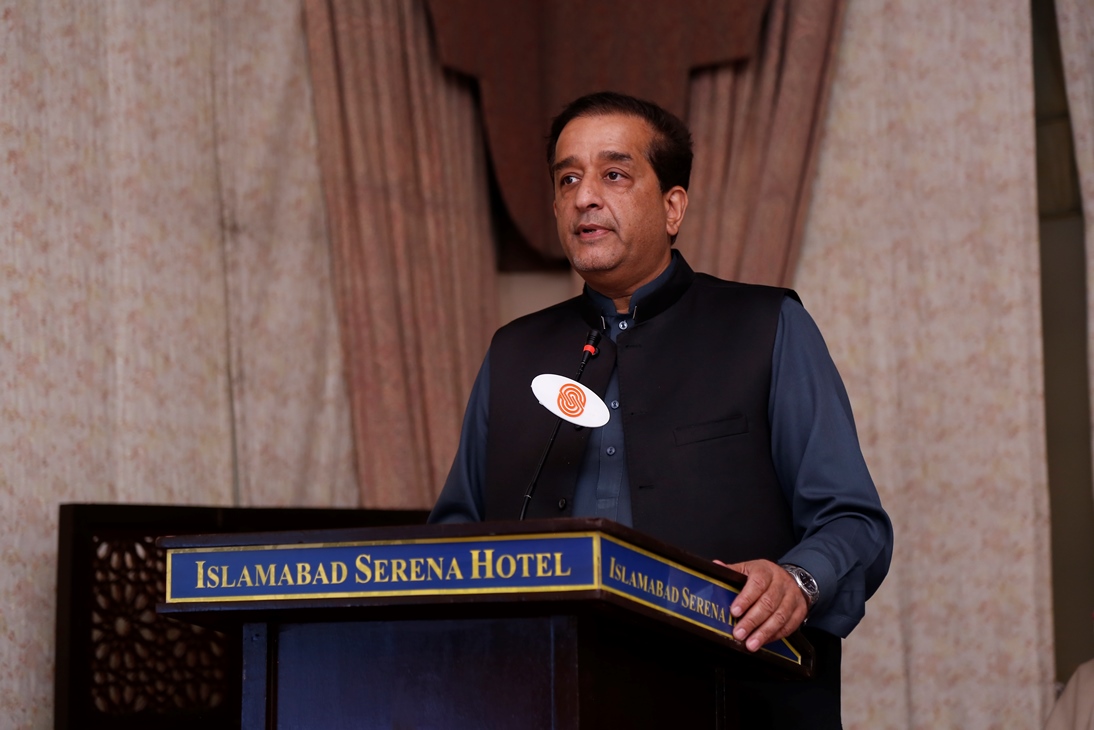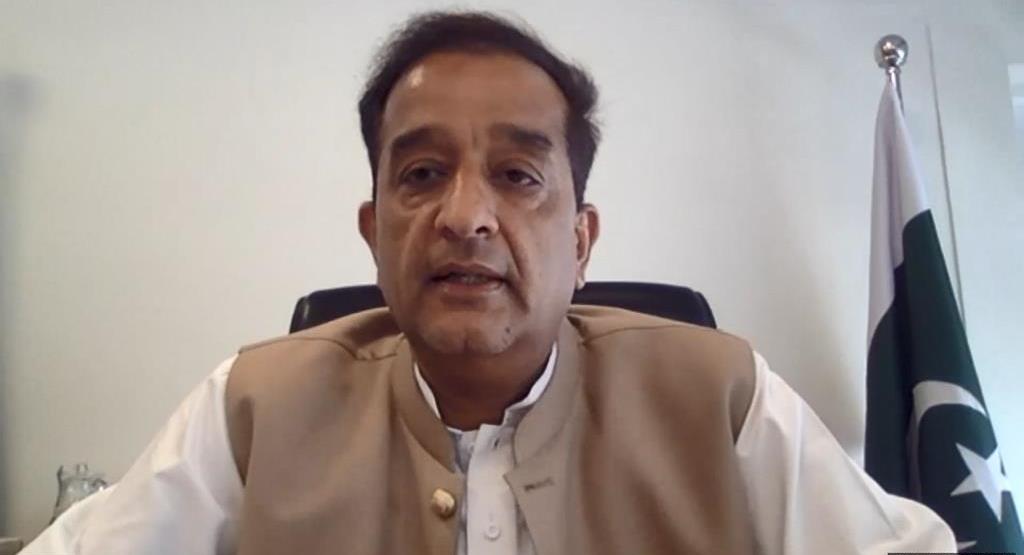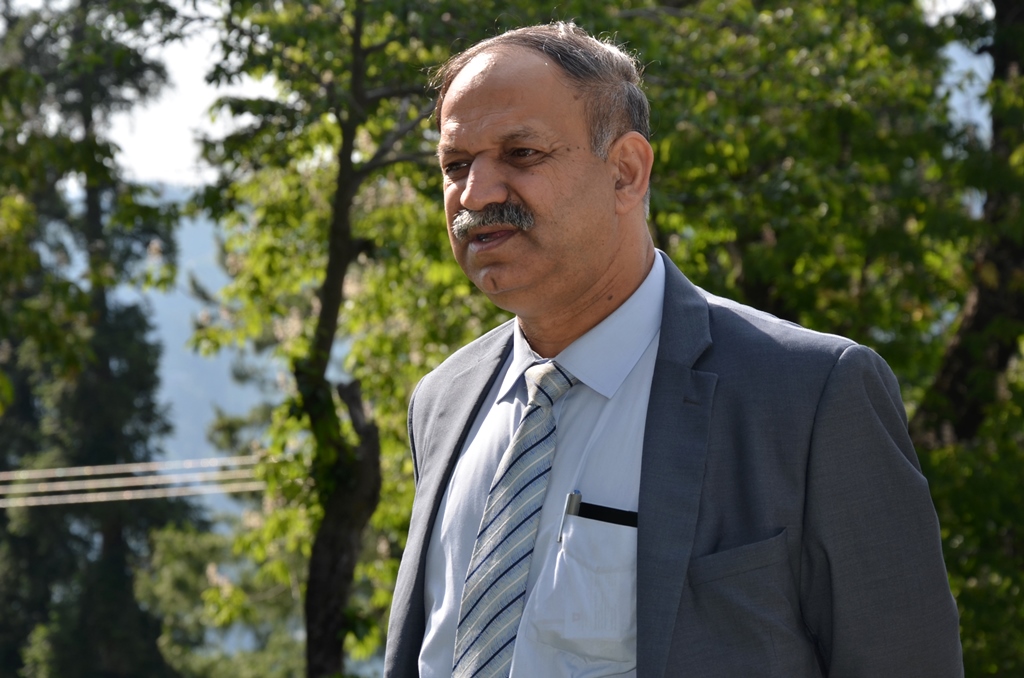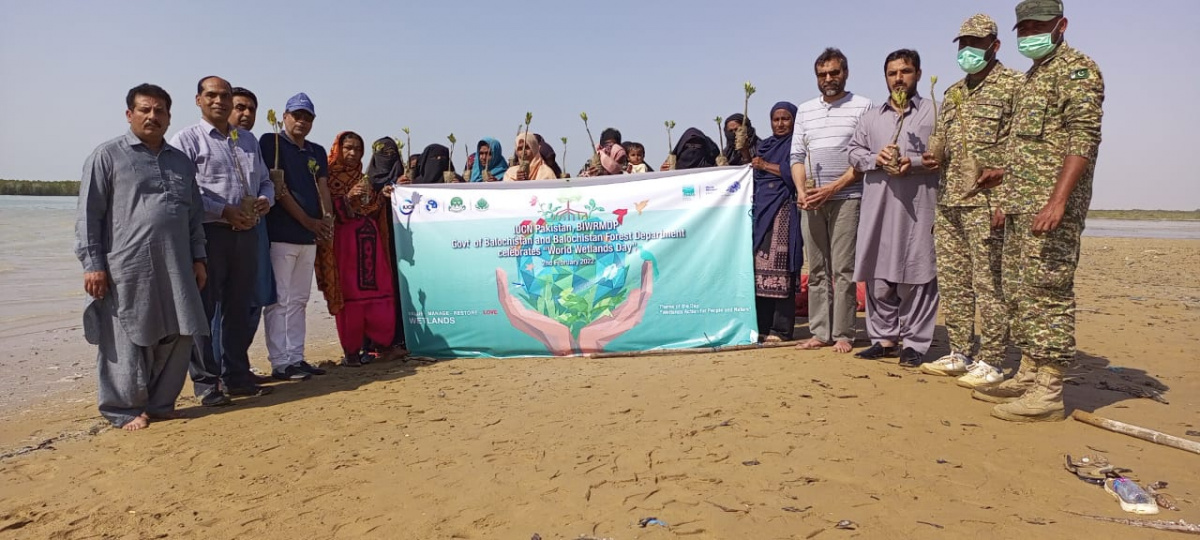National Workshop on MIS/Log-frame of the Ten Billion Tree Tsunami Programme concludes in Islamabad
A three- day National Workshop on Pakistan’s Ten Billion Tree Tsunami Programme (TBTTP) was concluded today in Islamabad. The workshop was jointly organized by Pakistan’s Ministry of Climate Change, KfW and the Third Party Monitoring Consortium. The Consortium comprised IUCN Pakistan, FAO Pakistan and WWF-Pakistan.
The German Federal Ministry for Economic Cooperation and Development (BMZ) provided financial assistance for the workshop as the third-party monitoring initiative. Forestry Departments of Khyber Pakhtunkhwa, Punjab, Sindh and Balochistan as well as Azad Jammu and Kashmir and Gilgit-Baltistan actively participated in the workshop.
With KfW’s technical and financial assistance, the Consortium developed a logical framework, monitoring tools, methodologies after conducting a preliminary assessment of selected sites across Pakistan. The workshop focused on building the capacities of the Forestry Departments and TBTTP teams in information management systems, data collection and monitoring.
The Honorable Special Assistant to the Prime Minister on Climate Change, Mr. Malik Amin Aslam Khan, apprised the efforts of the TBTTP Forestry Department teams which have resulted in becoming a global success story on environment. Global climate leaders at COP-26 Glasgow acknowledged this green initiative, which has become a brand for Pakistan. Mr. Khan said that TBTTP is the flagship programme of the Ministry of Climate Change building up on the successful implementation of the Billion Tree Afforestation Project in KP. Afforestation and protection of the existing forest landscape is being pursued across the country. International development partners have shown high interest in supporting the activities scheduled under this programme.
The Special Assistant appreciated the work done by the national project management unit of TBTTP with the support of provincial teams and field staff in achieving annual targets. He highlighted transparency has been the strength of the programme which TBTTP inherited from BTAP. Third Party Monitoring of TBTTP by the Consortium will further strengthen transparency, monitoring and reporting by streamlining latest tools and methodologies such as drones. Mr. Khan thanked the German Government for the continued financial and technical support for development in Pakistan, especially clean energy and nature-based solutions to climate change.
In his remarks, Mr. Mahmood Akhtar Cheema, Country Representative IUCN Pakistan, said that the consortium comprising of FAO, WWF and IUCN will independently monitor the programme activities using the methodologies and tools developed during the pilot monitoring phase. The findings of the pilot monitoring were given due weight by the MoCC and the report of the pilot monitoring was presented to SAPM Mr. Malik Amin Aslam Khan and the Honorable Prime Minister of Pakistan Mr. Imran Khan. Mr. Cheema thanked the German Federal Ministry for Economic Cooperation and Development (BMZ) for its financial support in supporting the consortium in the planning phase as well as for undertaking the fully fledged monitoring process. He also appreciated the technical role of KfW during the planning phase and the finalization of the Log-frame as well as the MIS development to include the independent third party monitoring of the TBTTP.
Mr. Sebastian Jacobi, Country Director KfW Pakistan, highlighted the contribution of Germany in Pakistan’s climate change and energy sector. Mr. Jacobi emphasized that the recently signed German-Pakistan Climate Change and Energy Initiative will provide necessary institutional underpinning for a long-standing partnership and strategic dialogue. He said the German Government's Climate Change and Energy portfolio valued 300 million euros. These included projects such as the Billion Tree Afforestation Support Project in KP, the Hydropower and Renewable Energy Generation initiatives in KP and GB and rehabilitation / scaling up on existing hydropower infrastructure like Warsak Dam in KP. He also reiterated the German Government’s 2.5 million euros funding for the independent monitoring of TBTTP through the Consortium.
Mr. Hassan Sukhera, National Project Manager, Ten Billion Tree Tsunami Programme (TBTTP) provided an overview of the TBTTP Programme and its Management Information System (MIS). In his remarks he said that technology is playing a key role in reporting and monitoring the project progress. He apprised that the data reporting and processing system will remain useful for decision makers.
Dr. Faiz-ul-Bari, NRM Advisor, FAO Pakistan acknowledged the efforts of the TBTTP national team and also highlighted that the FAO team will be using industry standard IT Tools for monitoring and evaluation of the TBTTP.
Mr. Hammad Naqi Khan, Director General WWF-Pakistan, mentioned that the WWF field teams are well equipped and they have vast experience of field sampling and monitoring in Pakistan, since their experience from the Third Party Monitoring of BTAP in KP. In third party monitoring of the TBTTP, he assured the support of field teams.
The TBTTP is the largest afforestation programme in the country which comprises of tree plantations/ assisted natural regeneration and also supports implementation of targets 15.1, 15.2, 15.5 and 15.7 of the UN Sustainable Development Goals. The programme targets will also help in mitigating the impact of climate change in the country. The increase in vegetative cover will prevent land degradation and will also help in soil stabilization.
IUCN will facilitate the Ministry of Climate Change for overall coordination, development of Logical Framework and in undertaking the Biodiversity Assessment. FAO will extend support for regular field data collection and periodic forest cover change assessment through remote sensing and provide technical support in the integrated watershed management and forest landscape restoration. WWF Pakistan will be responsible for the field sampling and monitoring.
The project is designed to foster and strengthen national and provincial climate change adaptation through field intensive activities and in meeting Pakistan’s global environmental commitments.
For more information, please contact:
Hammad Saeed
Manager Information and Knowledge Management
IUCN Pakistan
Cell: 0307-7773801
E-mail: hammad.saeed@iucn.org





